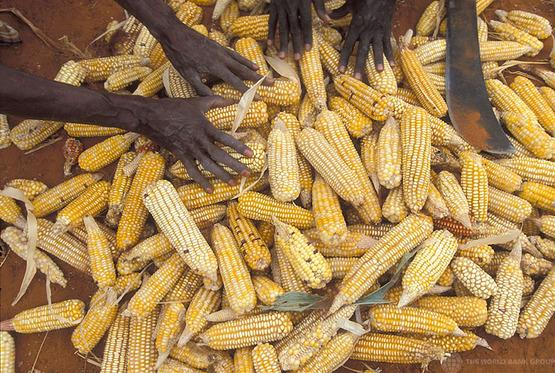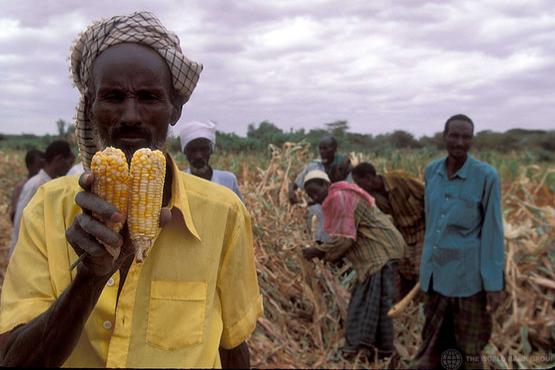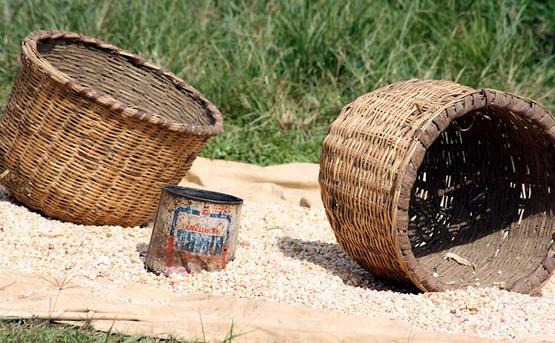Preventing the encroachment of staple food crops into intact forest ecosystems is a major environmental challenge. Wheat, rice and corn, equal more than half of all plant-derived calories consumed in the human diet, with corn providing about 20 percent of the total.
Sustainability Opportunities

Gathering corn, Kenya. By © Curt Carnemark/World Bank
Demand for corn is increasing in tandem with population growth and prosperity levels, adding urgency to the need to sustainably intensify production to increase its availability and reduce its environmental footprint. Unsustainable agricultural practices lead to soil degradation, depleting fertile farmland.
Efforts to boost yields, will involve integrated agro-ecological systems management, product value chains, innovative technologies for green agriculture development, payment for agro-ecological services incentive mechanisms, and partnerships for biodiversity, soil and water conservation, climate change mitigation, food security, food safety and sustainable rural livelihoods.
The impact of climate change, which includes drought and floods, has increased vulnerability, reducing the capacity for adaptation and mitigation. Value chains are negatively affected by inefficient pre- and post-production processes. Yields have declined as the impact of climate change and environmental degradation grow in tandem with ever-increasing demands for food and water. Goals include developing a range of strategies and action plans to increase the potential for economic growth as sustainable management techniques are fortified and natural ecosystems are supported to ensure ecosystem services.
Our Strategy
Greater sustainability means producing higher yields on existing agricultural land, conserving ecosystem services and supporting farmers to ensure they can weather the vagaries of climate change and market risks. Limiting the extent of the environmental footprint of corn will result in reducing deforestation, degradation, greenhouse gas emissions and water depletion. The program provides an opportunity for both China and Kenya to address drivers and barriers to the development of a sustainable maize production system and fortify value chains.
In China, the second biggest producer of corn after the United States, high-yield intensive agricultural production has resulted in high resource consumption, environmental degradation, greenhouse gas emissions emissions, and severe land degradation. Use of fertilizers and pesticides in combination with industrialized farming have contributed to habitat and biodiversity loss while weakening agricultural system resilience. Under a new national strategy, the country has made the shift toward making a sustainable food production system a top priority as its population grows.
In Kenya, corn is a major staple crop and policies in place to respond to land-use changes and address massive forest loss. Integrated landscape management systems, restoration policies and by developing innovative payment for agro-ecological services and incentive mechanisms sustainable, safe, and smart agri-food systems will create enabling environments for corn.

Man shows harvested corn. Kenya. By © Curt Carnemark/World Bank
Country Project Highlights

Corn drying, Kenya. By Benno Hansen. Used under Creative Commons license.
FOLUR is involved in corn projects in:
- China
- Kenya







